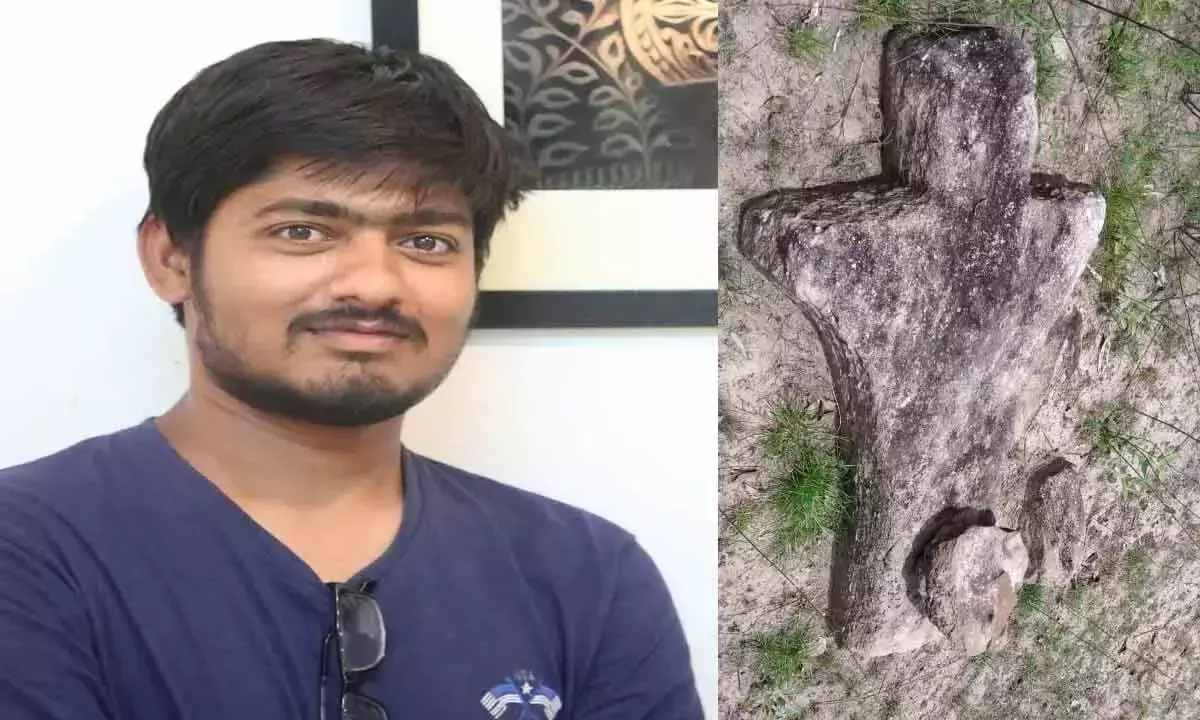Warangal: Several explorations have already revealed that the erstwhile Warangal district is a treasure trove that tells many things about the humans since the times of prehistoric period. A rare human form of menhir, standing stone said to be planted in memory of the dead, that dates back to the megalithic era has been discovered at the Suddhagutta area near Motlagudem village under Mangapet mandal in Mulugu district, 274 kilometers northeast of Hyderabad, by the members of the Team of Research of Culture and Heritage (TORCH) Organisation and heritage enthusiasts B Karthik and K Srikanth after they got a tip-off from a resident of the village Bangari Mohan.
These menhirs or vertical stones, were found in the graves of individuals considered important within the local community. Although such pillars can still be found in many places throughout Telangana, menhirs with anthropomorphic figures are incredibly rare and are only found in a limited number of countries worldwide. The rare monument stone found in this area has a height and width of four-and-a-half-foot and depicts a human figure with a curly head, an oblong chest, shoulders, and a lower waist. Similar male and female forms have also been found engraved on stones in the Kanchanapalli, Galaba and Gundala areas of the Khammam district.
These ancient menhirs, which were discovered in the Godavari river basin, provide insight into the existence and evolution of early humans in the region. Unfortunately, the destruction of hundreds of primitive graves near Kothuru village for the construction of village houses is a painful loss. To make matters worse, visitors to the site have already broken the rare memorial stone into two pieces.
Speaking to The Hans India, Historian, and Torch Organization Secretary Aravind Arya Pakide said, “It’s high time that the Archaeology Department laid its focus on protecting this rare menhir. It will provide more insights into the culture and heritage of the bygone era. The onus is also on the local administration to protect them.”
It may be mentioned here that Thomas E. Levy, a distinguished professor of Anthropology at the University of California, San Diego, had visited Dameravai village under Tadvai mandal some six years ago, which has a large collection of dolmens, estimated to be of nearly 5,000 years. Then Levy went on to note that the site needed a Lidar survey to find how prehistoric man lived about 5,000 years back. Incidentally, Dameravai is just 4 kilometers from Motlagudem.
